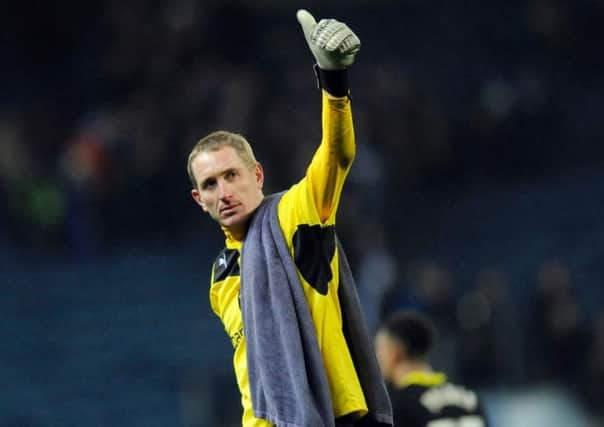Chris Kirkland: '˜I had the best time of my career with Latics'


His father Eddie, a crane driver, was so convinced of his son’s raw ability at 14, when Chris towered above his school mates, that he and a group of friends placed a bet of £100 at 100-1 that he would win an England cap by the time he was 30.
Kirkland claimed his one and only senior cap as a second-half substitute against Greece in August 2006.
Advertisement
Hide AdAdvertisement
Hide AdIndeed, when Coventry City had transferred Kirkland to Liverpool five years earlier, at the time his £6million fee was the most expensive for a goalkeeper in British history, Sven Goran Eriksson had described him as the future of English goalkeeping.
But it was at Wigan where Kirkland enjoyed the happiest moments from 2006 to 2009, under the supervision of Paul Jewell and then Steve Bruce.
“I never wanted to leave Wigan, I had the best time of my football life there, and it was a big shock when they sold me to Sheffield Wednesday,” said Kirkland. “Latics were in the Premier League, playing great football, and I was very happy at the JJB.”
However, when we share breakfast at Kirkland’s home, between Liverpool and Southport, he talks about a far bigger personal challenge, dealing with a harrowing depression, leaving the game and why players should not suffer in silence.
Advertisement
Hide AdAdvertisement
Hide Ad“I had a bad weekend just gone, not good at all, and if you sit there it can destroy you,” he said.
“I got help, but without that, then that’s the scary thing isn’t it?
“I’d say to my wife, Leeona, who is my rock, that I couldn’t wait to go to sleep at night and just be clear.
“But then, I didn’t want to wake up in the morning because it just starts again.
Advertisement
Hide AdAdvertisement
Hide Ad“When you go out and feel like that then you just put on an act.”
That aid and assistance came from the Professional Footballers’ Association, when he contacted Michael Bennett, the head of player welfare at the PFA, after announcing his retirement in 2016. “They were brilliant,” he said. “The lady I see has worked wonders and I want other people and other players to know that you’ve just got to talk.
“She’s given me coping mechanisms, such as breathing techniques, but I struggle a lot with anxiety; I still do.
“I just want other people and other players to know that you’ve just got to talk.
Advertisement
Hide AdAdvertisement
Hide Ad“I never saw a way out of it until I started to talk about it.
“Some days you don’t feel like you can cope. You don’t know what it is – something just takes over and you are not in control.
“You can’t function properly and it does feel like somebody else has entered your body and taken over.” Kirkland remembers the tears rolling down his face when he said his goodbyes at Wigan after six years and, although he would be the first choice at Sheffield Wednesday for the next two seasons, he recalls having panic attacks in traffic jams and not wanting to leave his home.
He said: “You just don’t want to go out or open the door. When it was bad, I didn’t answer my mobile for days.
Advertisement
Hide AdAdvertisement
Hide Ad“Generally, during matches, I didn’t think about it, but occasionally I did, and when the final whistle sounded it started again.
“Somehow I managed to get through it at Sheffield Wednesday, but when Keiron Westwood came in I was on the bench. I know it sounds bad, but it was a big relief when I was not playing.”
Kirkland is still very much involved in football, forging a reputation as an incisive pundit on television and radio and he has set up the Chris Kirkland Goalkeeping Academy.
And he is not ashamed or embarrassed to talk and wants others who could be suffering in silence with mental illness that they can have the confidence to seek help.
Advertisement
Hide AdAdvertisement
Hide Ad“The response has been brilliant, me talking about this in the open,” he said.
“I’ve had people coming up in the street, saying that it has given them a little more strength, some making an appointment to see the doctor.
“Many players, current and former players, have got in contact to say that they are struggling too.
“If I can help just one person reading this article then that would be a success, because this thing never goes away.”